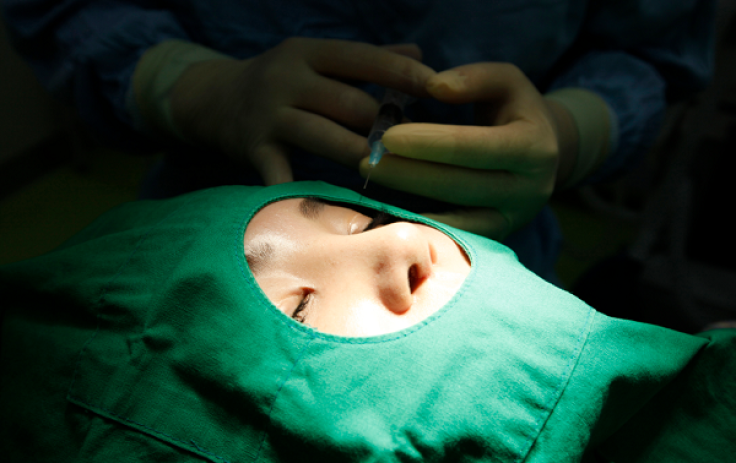South Korean Six Bomb Band Encourages Plastic Surgery By Going Under The Knife

A South Korean girl band spent nearly 100 million wan, or $88,600, on plastic surgery before releasing a series of videos praising enhanced beauty.
The four members of K-Pop band, Six Bomb, underwent extensive plastic surgery before releasing the video for their latest tracks, "Becoming Prettier (Before)" and "Becoming Prettier (After)," in which the ladies recap their personal experiences with surgery and brag about how attractive they are after getting surgery.
The group’s manager, Kim II-woong, told BBC News Friday Six Bomb had "almost every kind of surgery that could be done on their face," as well as breast implants.
Although South Koreans have a reputation for going under the knife, Six Bomb’s new songs mark the first time a band has released music praising cosmetic surgery.
"We all wanted to get some surgeries done to look prettier and thought, 'Why not perform a song about it instead of trying to conceal it?'" lead singer Dain, who had her cheekbones shaved and breast implants, told the Agence France-Presse. "People will notice it anyway, so we wanted to be open about this reality where many women want to look pretty."
South Korea has been considered a plastic surgery capital, with more than 60 percent of women in the country receiving cosmetic enhancements during their late 20s while another 40 percent undergo the knife in their early 20s, according to a BBC report.
In South Korea’s popular Gangnam neighborhood, more than 500 cosmetic surgery centers have set up shop.
A 2014 International Society of Aesthetic Plastic Surgery report said South Korea had the highest ratio of surgeries per capita. With more than 980,000 nip and tucks performed that year, surgeons in the area performed about 20 procedures per 1,000 people compared to the U.S., which accounted for more than four million surgeries in 2014.
© Copyright IBTimes 2024. All rights reserved.












